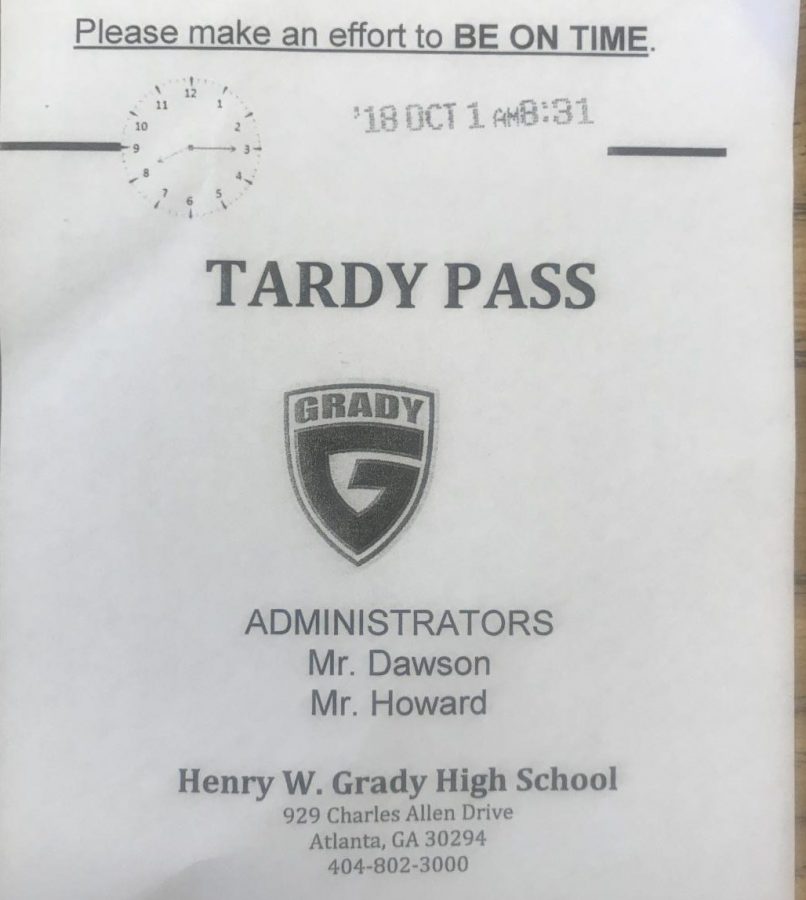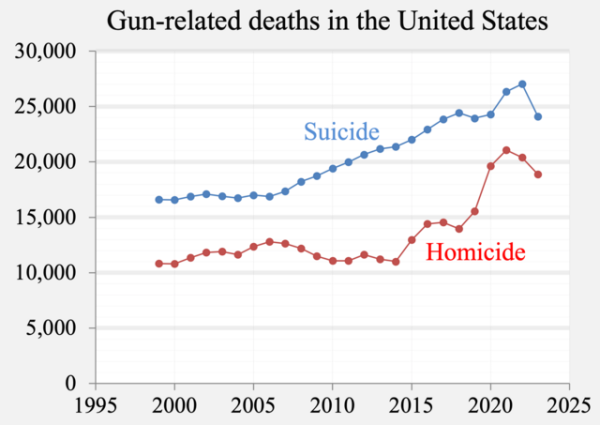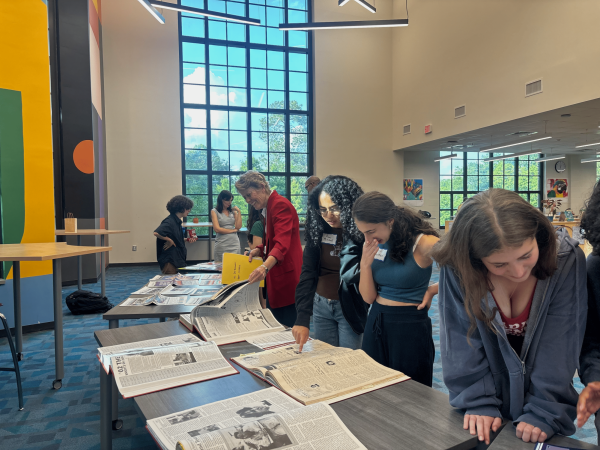Tardy process is flawed and needs change
A first-period tardy pass from Oct. 1, 2018 for a student one-minute pass the 8:30 a.m. start time for class.
The tardy process in schools is designed to run efficiently and quickly to allow students to get to class in a timely manner. However, at Grady, our tardy process is flawed with its disciplinary actions and effort, and it needs to be addressed.
Assistant Principal Raymond Dawson explicitly states every morning, “There are only two ways to arrive to school: you are either on time, or you are late, so let’s be on time, ladies and gentlemen.”
Students must be in class by the time the bell rings at 8:30 a.m. If they arrive any time after, they need to get a tardy pass from the cafeteria. If students are tardy more than twice in a week, they receive an automatic after-school detention, but because this does not go on a student’s transcript, some students would rather show up late and serve detention than put in the effort to be on time to school.
The punishments for tardiness are very unbalanced. Someone who arrives to school one minute late to school will receive the same punishment as someone who arrives to school 30 minutes later, assuming both are unexcused tardies. Administration is promoting timeliness to prepare Grady students for the real world, so regardless if a student is one minute late or 30 minutes late, they are still late to school.
Consequently, the tardy policy encourages skipping, as students sometimes choose to skip first period altogether when they find themselves a few minutes late knowing their punishment will be the same.
The policy is unfair to students whose first classes take longer to get to. Students might have to get a pass after arriving late to a class on the fourth floor or in the trailers when they would have arrived with time to spare to a class on the first floor.
Additionally, locking the dirt lot gates near the trailers on 10th Street increases a student’s chance of arriving to school tardy as they have to go all the way around the gym and through the 10th Street parking lot. We understand that gates are locked for security reasons, but it would make more sense to lock the gates after 8:30 a.m. when students will already be late.
The whole process of forcing a student to get a pass does more to disrupt learning than to encourage it. It only serves to take away from students’ time to learn by making them go to the cafeteria and then stand in a line to get a pass. This takes much more time than being allowed to enter class late and being marked tardy; getting a pass is not necessary in this process.
Administration meets every month to plan how to incentivize students to maintain good attendance. Recently, the freshman class received ice cream at the pep rally in honor of receiving the best grade-level attendance at Grady. We think this is a great idea to motivate students to show up to school on time, but we think administration and the tardy committee should use more effective prizes and incentives for individual students rather than a whole grade.
The administration should introduce an alternative tardy policy because the attendance policy does more harm than good to students and is not fair to students who take longer to get to their first classes due to location. The unreasonable threats of punitive action should be diminished to avoid students skipping altogether.






